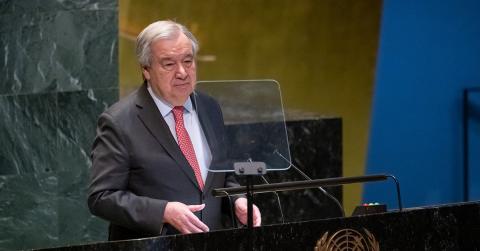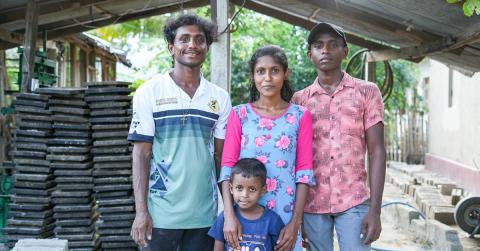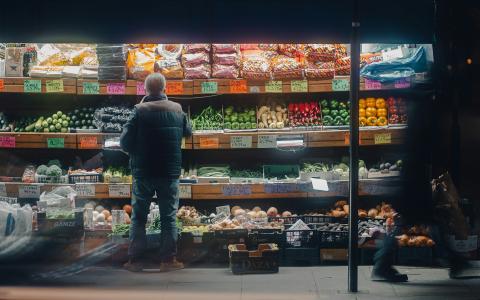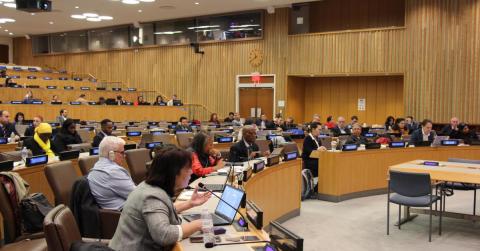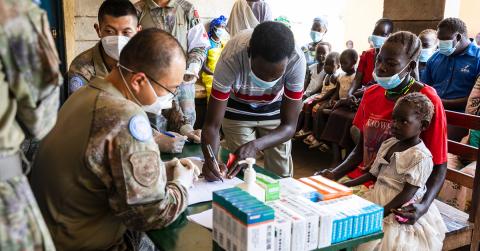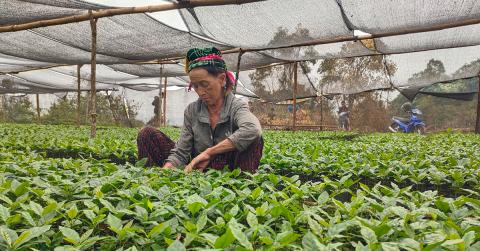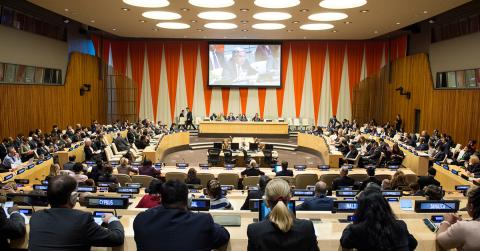Sixth global conference to promote synergies between climate and the SDGs
How can governments and other key players urgently act on the climate crisis in a way that maximizes sustainable development and the achievement of the SDGs?
Government officials and experts from civil society, the private sector and academia will come together in Copenhagen, Denmark on 27-28 May 2025 to tackle this and related questions at the 6th Global Conference on Climate and SDG Synergies, co-convened by UN DESA and UN Climate Change (UNFCCC), hosted by the Ministry of Foreign Affairs of Denmark.
Empowering NGOs: Your path to UN engagement
As the world continues to navigate complex global challenges—ranging from climate change and economic instability to humanitarian crises and persistent inequality—civil society organizations play a critical role in bridging the gap between governments and communities. They address pressing issues that governments alone cannot fully resolve.
UN High-level Advisory Board gears up for Bangkok meeting
A new group of distinguished members of the United Nations High-level Advisory Board on Economic and Social Affairs (HLAB) is preparing to embark on the third term of the Board, with a two-day meeting in Bangkok, Thailand.
Convened by Li Junhua, the UN Under-Secretary-General for Economic and Social Affairs, the Board brings together a dynamic group of prominent academics and thought leaders from around the world.
Family-oriented policies for a more inclusive future
On 15 May 2025, the United Nations will commemorate the International Day of Families under the theme “Family-Oriented Policies for Sustainable Development: Towards the Second World Summit for Social Development”. Held at UN Headquarters in New York, this year’s observance highlights the vital role of families and family policy in building more inclusive, resilient and sustainable societies.
Navigating through an inflationary world
While inflation has eased from its recent highs, it continues to be a pressing concern for households, businesses and policymakers. UN DESA’s latest Monthly Briefing on the World Economic Situation and Prospects analyses current inflation trends, explores the evolving drivers behind price pressures, and discusses policy priorities to address the complex inflation landscape.
The current inflation landscape and outlook
Using governance perspectives to advance the Sustainable Development Goals
The Committee of Experts on Public Administration (CEPA) will hold its 24th session at UN Headquarters in New York from 7 to 11 April 2025. They will discuss governance and institutional perspectives on advancing sustainable, inclusive, science and evidence-based solutions for the SDGs. The session will cover a range of topics critical to meeting today's sustainable development challenges, including:
Preparations underway for the UN Ocean Conference
The ocean is one of Earth's most vital ecosystems, essential for sustaining life and livelihoods. Its critical role in sustainable development has been widely recognized and increasingly mainstreamed in relevant global efforts. From climate regulation and food security to economic resilience and biodiversity conservation, the ocean is at the heart of achieving the 2030 Agenda for Sustainable Development.
We live longer than ever, but many health-related SDG targets are off-track ahead of 2030 deadline
Global health has improved significantly over the past 30 years thanks to advances in disease control, public safety, nutrition, personal hygiene and medical therapies. Progress towards universal health coverage and emphasizing primary healthcare, has contributed to rising life expectancies worldwide.
Global trade in flux: Navigating policy volatility and structural shifts
International trade is once again in the spotlight. A new Monthly Briefing from UN DESA examines the evolving dynamics, offering insights into both the risks and potential opportunities ahead.
Structural shifts in global trade
Advancing fair and inclusive tax cooperation for sustainable development
Tax policy is at the heart of sustainable development. From funding essential public services to tackling inequality, a fair and effective tax system is fundamental to a just and resilient global economy.
For two decades, the UN Committee of Experts on International Cooperation in Tax Matters has played a key role in shaping tax norms and providing practical solutions that address pressing global challenges—from digital economy taxation and environmental taxation to tax transparency and extractive industries taxation.
 Welcome to the United Nations
Welcome to the United Nations

